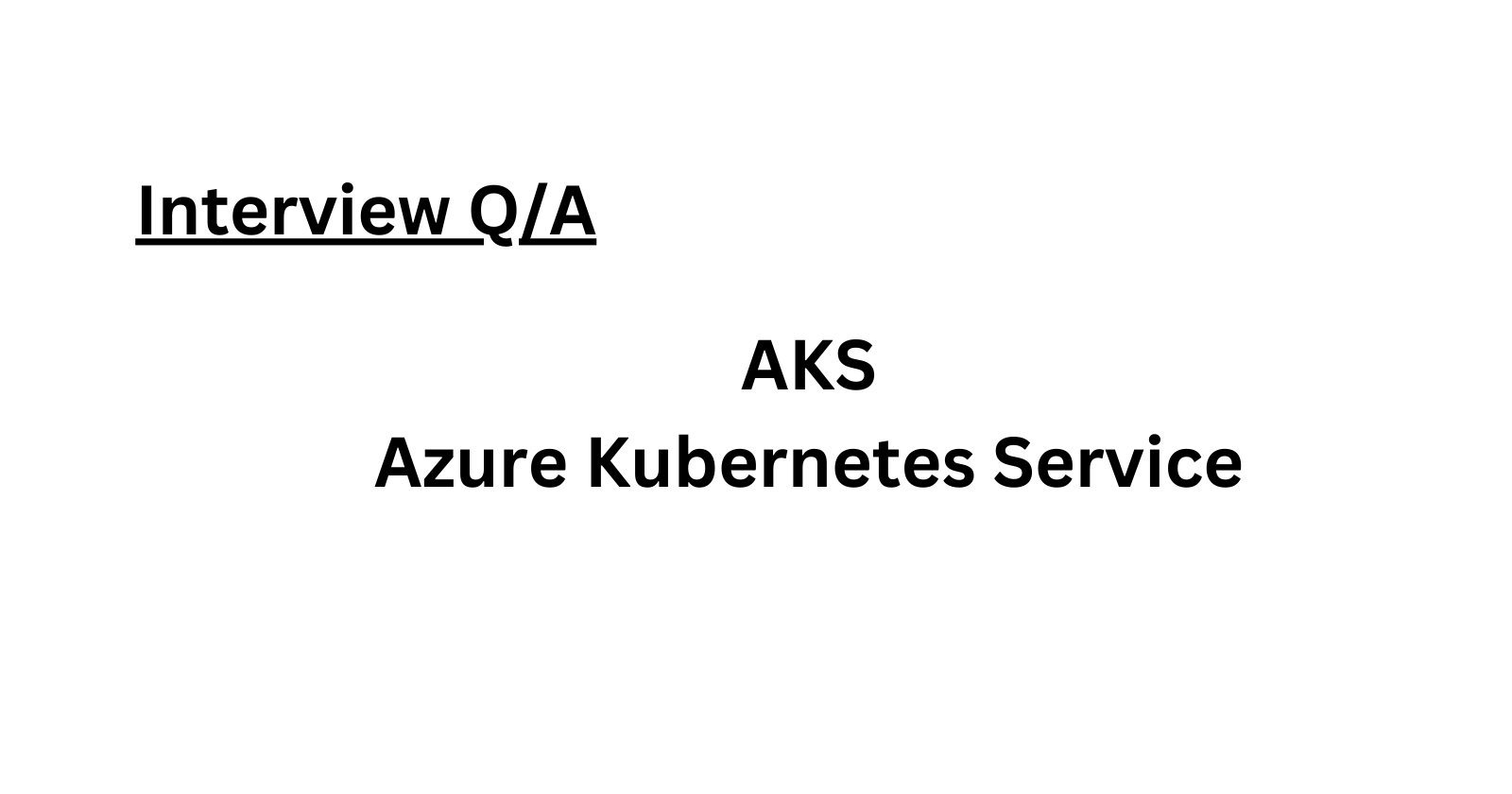Understanding AKS & Its Purpose
 Amrutha D
Amrutha D
What is Azure Kubernetes Service (AKS) and why is it used?
Azure Kubernetes Service (AKS) is a managed container orchestration service provided by Microsoft Azure, designed to streamline the deployment, management, and scaling of container-based applications within Kubernetes clusters. It integrates Azure's cloud platform with the capabilities of Kubernetes, offering a fully managed solution for deploying and orchestrating Docker containers in a cluster environment.
AKS simplifies the creation of Kubernetes clusters, allowing for efficient provisioning, scaling, and management of resources without requiring in-depth expertise in container orchestration. It enables developers to build modern applications on the Azure architecture, reducing the complexities involved in deploying and running applications on Kubernetes. Moreover, Azure Container Instances serve as a suitable option for deploying containers on the public cloud, easing the deployment process for developers working with Kubernetes.
Azure Kubernetes Service Benefits:
Efficient resource utilization: AKS efficiently manages containerized applications, enabling elastic provisioning of resources without the need for direct Kubernetes infrastructure management, thereby optimizing resource utilization.
Accelerated application development: By handling patching, auto-upgrades, and self-healing functionalities, AKS reduces debugging time, allowing developers to focus more on creating applications, thereby enhancing productivity.
Security and compliance: AKS integrates with Azure Active Directory (AD), offering enhanced security features and compliance with industry standards such as SOC, HIPAA, ISO, and PCI DSS, minimizing potential threats and risks.
Streamlined development and integration: With support for auto upgrades, monitoring, and scaling, AKS minimizes infrastructure maintenance, facilitating faster development and integration processes. It also enables the provisioning of additional compute resources in Serverless Kubernetes swiftly, without managing the Kubernetes infrastructure.
Azure Kubernetes Service Features:
Enterprise commitment in an open-source environment: Microsoft significantly contributes to making Kubernetes more accessible and business-oriented, aiming to simplify its usage for developers through open-source projects and best practices.
Nodes, clusters, and node pools: AKS operates on Kubernetes nodes running on Azure Virtual Machines, managed within clusters that can scale up or down based on resource demands. Nodes with similar configurations are grouped into node pools, forming crucial components of the AKS environment.
Role-based access control (RBAC):
Integration with Azure AD allows for granular access control and monitoring based on user identity and group membership, ensuring secure management of Kubernetes architecture.
Integration of development tools: AKS seamlessly integrates development tools like Helm and Draft, enhancing the Kubernetes development experience. Azure Dev Spaces further facilitates quicker iterative development by enabling direct container running and debugging in the AKS environment.
Support for diverse workloads: AKS supports a wide range of workloads, allowing for the orchestration of various applications and services within its cluster environment.
Simplification of complexities: AKS simplifies implementation, installation, maintenance, and security concerns in the Azure cloud, offering a cost-effective service with no additional charges for Kubernetes cluster management.
Azure Kubernetes Service Use Cases:
Migration of existing applications: AKS aids in migrating existing applications to containers, providing control via Azure AD integration and enabling the use of Azure Services like Azure Database through Open Service Broker for Azure (OSBA).
Management of microservices-based apps: AKS simplifies the development and management of microservices-based applications, streamlining tasks such as load balancing, scaling, self-healing, and secret management.
Integration of DevOps with Kubernetes: AKS enhances DevOps security by integrating Kubernetes, facilitating Continuous Integration and Continuous Delivery (CI/CD) with dynamic policy controls.
Ease of scaling: The service allows for easy scaling using Azure Container Instances (ACI) and AKS, automatically provisioning additional pods when resource requirements exceed capacity.
Data streaming: AKS supports the processing of real-time data streams through sensors, enabling quick data analysis.
Azure Kubernetes Service Pricing:
AKS itself is a free container service, with charges applicable only for consumed cloud resources such as VMs, storage, and networking. The Container Services calculator assists in estimating the cost of required resources.
Conclusion:
Azure Kubernetes Service (AKS) is a robust and cost-effective container orchestration service, simplifying the deployment and management of containerized applications within seconds. It efficiently utilizes resources, ensures security and compliance, integrates seamlessly with development tools, and supports diverse workloads. AKS removes complexities, facilitates scaling, and migration of existing workloads, and provides access to containerized resources via management portals or the AKS CLI, making it an ideal choice for modern application deployment and management on Azure.
Subscribe to my newsletter
Read articles from Amrutha D directly inside your inbox. Subscribe to the newsletter, and don't miss out.
Written by

Amrutha D
Amrutha D
Gen AI Video Creator | Gen AIOps | AIOps Cloud DevOps Engineer | Let's Connect & share Technical knowledge & grow together in Technologies Everyday..